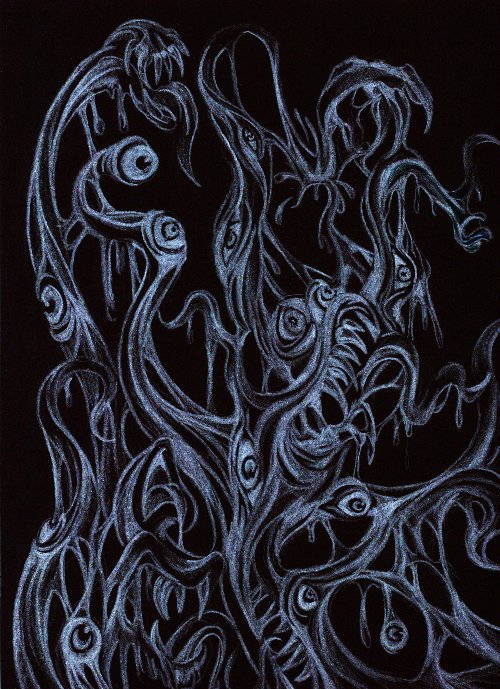by Diana H. Coole
Although frequently invoked by philosophers and political theorists, the theory of negativity has received remarkably little sustained attention.Negativity and Politicsis the first full-length study of this crucial topic within philosophy and political theory. Diana Coole explores the meaning of negativity in modern and postmodern thinking, and examines its significance for politics and our understanding of what constitutes the political. Beginning with an insightful reading of Kant'sCritique of Pure Reasonand a consideration of the work of Hegel, Coole goes on to discuss the importance of negativity in the thought of a number of key theorists including Nietzsche, Adorno, Kristeva, Freud, Foucault, Habermas, Deleuze, Derrida and Butler. Throughout, Coole clearly and skillfully shows how the problem of negativity lies at the heart of philosophical and political debate.
http://www.mediafire.com/file/0im1mm2jwty/NEGATIVITY_AND_POLITICS__DIANA_C.pdf
see google books
Showing posts with label freud. Show all posts
Showing posts with label freud. Show all posts
Wednesday, November 4, 2009
Monday, December 8, 2008
Life and Death in Freud and Heidegger
Life and Death in Freud and Heidegger
(Contemporary Psychoanalytic Studies 6)
by Havi Carel
Life and Death in Freud and Heidegger argues that mortality is a fundamental structuring element in human life. The ordinary view of life and death regards them as dichotomous and separate. This book explains why this view is unsatisfactory and presents a new model of the relationship between life and death that sees them as interlinked. Using Heidegger’s concept of being towards death and Freud’s notion of the death drive, it demonstrates the extensive influence death has on everyday life and gives an account of its structural and existential significance. By bringing the two perspectives together, this book presents a reading of death that establishes its significance for life, creates a meeting point for philosophical and psychoanalytical perspectives, and examines the problems and strengths of each. It then puts forth a unified view, based on the strengths of each position and overcoming the problems of each. Finally, it works out the ethical consequences of this view. This volume is of interest for philosophers, mental health practitioners and those working in the field of death studies.
About the Author
Havi Carel is a Lecturer in Philosophy in the Faculty of Arts at the Australian National University. Her research interests include 20th Century German and French philosophy (in particular phenomenology), philosophy of psychology and psychoanalysis (especially Freud) and metaphysics. She is the co-editor of What Philosophy Is (London: Continuum, 2004) and the co-translator of The Order of Evils, by Adi Ophir (Zone Books: New York, 2005).
link
(Contemporary Psychoanalytic Studies 6)
by Havi Carel
Life and Death in Freud and Heidegger argues that mortality is a fundamental structuring element in human life. The ordinary view of life and death regards them as dichotomous and separate. This book explains why this view is unsatisfactory and presents a new model of the relationship between life and death that sees them as interlinked. Using Heidegger’s concept of being towards death and Freud’s notion of the death drive, it demonstrates the extensive influence death has on everyday life and gives an account of its structural and existential significance. By bringing the two perspectives together, this book presents a reading of death that establishes its significance for life, creates a meeting point for philosophical and psychoanalytical perspectives, and examines the problems and strengths of each. It then puts forth a unified view, based on the strengths of each position and overcoming the problems of each. Finally, it works out the ethical consequences of this view. This volume is of interest for philosophers, mental health practitioners and those working in the field of death studies.
About the Author
Havi Carel is a Lecturer in Philosophy in the Faculty of Arts at the Australian National University. Her research interests include 20th Century German and French philosophy (in particular phenomenology), philosophy of psychology and psychoanalysis (especially Freud) and metaphysics. She is the co-editor of What Philosophy Is (London: Continuum, 2004) and the co-translator of The Order of Evils, by Adi Ophir (Zone Books: New York, 2005).
link
Sunday, February 24, 2008
The Cambridge Companion to Lacan

The Cambridge Companion to Lacan
(Cambridge Companions to Literature)
by Jean-Michel Rabaté (Editor)
# Paperback: 310 pages
# Publisher: Cambridge University Press (August 18, 2003)
Jacques Lacan is renowned as a theoretician of psychoanalysis whose work is still influential in many countries. He refashioned psychoanalysis in the name of philosophy and linguistics at a time when it faced certain intellectual decline. Focusing on key terms in Lacan's often difficult, idiosyncratic development of psychoanalysis, this volume brings new perspectives to the work of an intimidating influential thinker.
uncanny gaze of Lacan surrounds...zzZZZ
Tuesday, December 25, 2007
Derrida - Archive Fever: A Freudian Impression

In Archive Fever, Jacques Derrida deftly guides us through an extended meditation on remembrance, religion, time, and technology—fruitfully occasioned by a deconstructive analysis of the notion of archiving. Intrigued by the evocative relationship between technologies of inscription and psychic processes, Derrida offers for the first time a major statement on the pervasive impact of electronic media, particularly e-mail, which threaten to transform the entire public and private space of humanity. Plying this rich material with characteristic virtuosity, Derrida constructs a synergistic reading of archives and archiving, both provocative and compelling.
"Judaic mythos, Freudian psychoanalysis, and e-mail all get fused into another staggeringly dense, brilliant slab of scholarship and suggestion."—The Guardian
"[Derrida] convincingly argues that, although the archive is a public entity, it nevertheless is the repository of the private and personal, including even intimate details."—Choice
parallel campaign
Subscribe to:
Posts (Atom)
